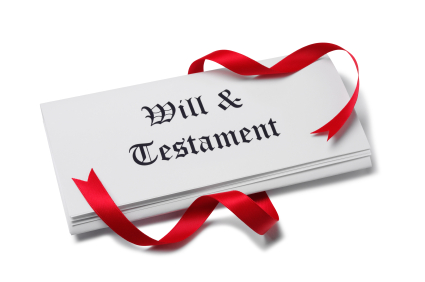
So who can witness a will? well to be legally valid, a Will must comply with all the requirements set out below:
The Will Must be in Writing and Signed by the Testator
The Will must be in writing whether this is handwritten or generated using modern word-processing technology. There is no requirement for the Will to be written on paper provided it can ultimately be conveyed to the Probate Registry after the Testator’s (the person signing their Will) death. In the case of Hodson v Barnes (1926), a Will written on an empty ostrich eggshell was once held to be perfectly valid, although we are not suggesting that this is a good idea!
The Will must be signed by the Testator using their normal signature. However, what constitutes a signature has been interpreted liberally by the Courts and a mark of any shape, a rubber stamp, and an inked thumb print have been accepted in the past
Where the Testator is unable to sign their Will for any reason, then a simple mark is sufficient to validate their Will if it is intended to be their signature and that mark is also intended to execute their Will.
There may also be circumstances where the Testator is blind, illiterate, or paralysed and this affects their ability to sign their Will. In this case, the Will can be signed on the Testator’s behalf and a special clause within the Will must be used to reflect this.
The Intention of the Testator
The signing of the Will by the Testator is sufficient evidence of their intention.
Witnesses
One such requirement is that a Will must be signed by the Testator in the presence of two or more witnesses being present at the same time.
What is a Witness?
A witness is a person who signs the Will to verify the signature of the Testator. The witnesses sign to confirm that they have observed the Testator signing their Will (although the witnesses do not need to know that the document is a Will, the nature of its content or sign in the presence of one another).
Both witnesses must be present at the same time and must not leave before the Testator has completed their signature.
A witness may be called upon later to provide a sworn statement (affidavit) to provide evidence of the circumstances of the previous signing of a Will. If there are any problems with the signatures on the Will, doubts as to the mental capacity of the Testator at the time the Will was signed, or any claims that the Testator was subjected to undue influence, then a witness’ later affidavit will be very important.
Who can be a Witness?
Anyone can be a witness unless their sight is impaired, as such a person is unable to witness a “visible act” such as the signing of a Will. A witness must be physically present, and they must also be mentally present. A person who is physically present at the time the Testator signs their Will but is asleep, unconscious, under the influence of alcohol or drugs, or otherwise lacking in mental capacity is not a good witness as they may not be fully aware of the circumstances surrounding the signing of the Will. They would therefore be incapable of providing an accurate statement as to the valid execution of a Will if called upon at a later stage.
There is no minimum age requirement to be a witness, but the witness must be aware and competent enough to give evidence, so it is advisable to choose witnesses who are over the age of 18 years. From a practical perspective, it is also sensible to choose witnesses who are younger than the Testator and likely to outlive them as they may be required to give evidence after the Testator’s death.
Finally, another practical tip is to avoid using a witness from another country since it could be difficult to locate them and communicate with them due to their geography, which could subsequently delay the administration of an estate.
A person who is a beneficiary or the spouse/civil partner of a beneficiary under the Will MUST NOT be a witness as gifts to such witnesses are void, and any gifts awarded to them in a Will would not stand as a result.
Example
Danielle (Testator) leaves a gift of money in her Will for the sum of £4,000 to her friend Amy who was also asked to be a witness to Danielle’s signature upon her Will. Danielle passes away soon after and as Amy is a beneficiary in the Will, she cannot receive this gift as it will be forfeited, and she will not be entitled because she also acted as a witness to Danielle’s signature. Therefore, the best sources of potential witnesses include friends, neighbours or even work colleagues as these people are far less likely to be included as beneficiaries within a Will.
For further details without fear of consultation fees or obligation, please visit our Wills page.


 TRF Wills (TRF) was created by Michael Cotterill in 2005. He is a member of the Society of Will Writers and registered with the Information Commissioner’s Office.
TRF Wills (TRF) was created by Michael Cotterill in 2005. He is a member of the Society of Will Writers and registered with the Information Commissioner’s Office.